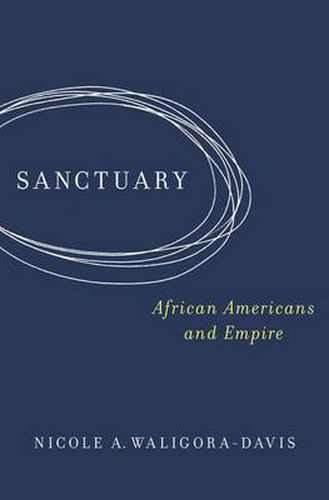Readings Newsletter
Become a Readings Member to make your shopping experience even easier.
Sign in or sign up for free!
You’re not far away from qualifying for FREE standard shipping within Australia
You’ve qualified for FREE standard shipping within Australia
The cart is loading…






In 2005, hurricane Katrina and its aftermath starkly revealed the continued racial polarization of America. Disproportionately impacted by the ravages of the storm, displaced black victims were often characterized by the media as refugees.
The characterization was wrong-headed, and yet deeply revealing. Sanctuary: African Americans and Empire traces the long history of this and related terms, like alien and foreign, a rhetorical shorthand that has shortchanged black America for over 250 years. In tracing the language and politics that have informed debates about African American citizenship, Sanctuary in effect illustrates the historical paradox of African American subjecthood: while frequently the target of legislation (slave law, the Black Codes, and Jim Crow), blacks seldom benefited from the actions of the state. Blackness helped to define social, cultural, and legal aspects of American citizenship in a manner that excluded black people themselves. They have been treated, rather, as foreigners in their home country. African American civil rights efforts worked to change this. Activists and intellectuals demanded equality, but they were often fighting for something even more fundamental: the recognition that blacks were in fact human beings. As citizenship forced acknowledgement of the humanity of African Americans, it thus became a gateway to both civil and human rights. Waligora-Davis shows how artists like Langston Hughes underscored the power of language to define political realities, how critics like W.E.B. Du Bois imagined democratic political strategies, and how they and other public figures have used their writing as a forum to challenge the bankruptcy of a social economy in which the value of human life is predicated on race and civil identity.
$9.00 standard shipping within Australia
FREE standard shipping within Australia for orders over $100.00
Express & International shipping calculated at checkout
In 2005, hurricane Katrina and its aftermath starkly revealed the continued racial polarization of America. Disproportionately impacted by the ravages of the storm, displaced black victims were often characterized by the media as refugees.
The characterization was wrong-headed, and yet deeply revealing. Sanctuary: African Americans and Empire traces the long history of this and related terms, like alien and foreign, a rhetorical shorthand that has shortchanged black America for over 250 years. In tracing the language and politics that have informed debates about African American citizenship, Sanctuary in effect illustrates the historical paradox of African American subjecthood: while frequently the target of legislation (slave law, the Black Codes, and Jim Crow), blacks seldom benefited from the actions of the state. Blackness helped to define social, cultural, and legal aspects of American citizenship in a manner that excluded black people themselves. They have been treated, rather, as foreigners in their home country. African American civil rights efforts worked to change this. Activists and intellectuals demanded equality, but they were often fighting for something even more fundamental: the recognition that blacks were in fact human beings. As citizenship forced acknowledgement of the humanity of African Americans, it thus became a gateway to both civil and human rights. Waligora-Davis shows how artists like Langston Hughes underscored the power of language to define political realities, how critics like W.E.B. Du Bois imagined democratic political strategies, and how they and other public figures have used their writing as a forum to challenge the bankruptcy of a social economy in which the value of human life is predicated on race and civil identity.